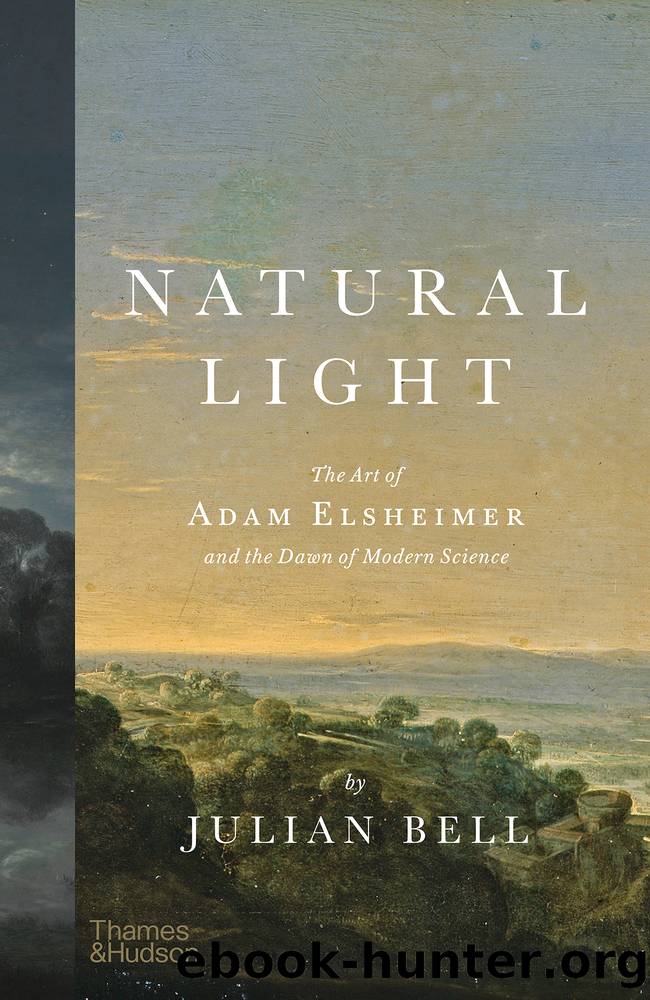Natural Light by Julian Bell

Author:Julian Bell
Language: eng
Format: epub
Publisher: Thames & Hudson
Published: 2023-07-15T00:00:00+00:00
The goddess Natura had a more popular sister. Natura was admirable but rather a scold: merely to turn your head her way was enough to know that there was a scheme of things, one in which she expected you to enact a certain role. Fortuna, however, took you as you were. She would hand you a good time and she would hand you a bad. But she expected nothing. People turned to this goddess readily because, in that sense, she was easy to live with. We find town-dwellers building temples to her in the days of the Roman Empire, while prim Natura had to content herself with literary salutes. In town, where rich and poor jostle, you might dream of moving up. You might hope for others to move down. And so the lateral to-and-fro of the street resolves itself into the vertical rotation of âFortuneâs Wheelâ, and you try to catch the eye of Lady Luck as she spins it.
I call the goddesses âsistersâ not because they had a mythic family backstory, but because they were born of the same tension. Between humans and their supreme god there stands a large problem: the world they have been given to inhabit appears less perfect than its creator. It was to address that conundrum in terms of bodies and space that philosophers dreamt up a prescriptive Natura, an intermediary caught between God, humanity and materiality. Fortuna, meanwhile, was meant to address the difficulty with regard to events and time. She was the face of that baffling slippage by which our plans go awry. And because these disappointments trouble us more than the worldâs failure wholly to be beautiful, Fortuna had the more prominent profile. In particular, she became the standard conceptual companion for those looking for temporal patterns in conditions of social mobility, so far as these obtained in the economies of medieval and Renaissance Europe. You might worship a Christian God who had appointed a grand finale to the whole of time, a destined last judgment. But for today and for tomorrow, pre-Christian Fortuna still looked your best bet as a fall-back forecaster.
Fortuna could conversely be hard to live with, however, and not simply because her wheel might thrust you down. One reason was precisely that in no way did she judge people. She was sheer luck, and as such she was by proverbial definition blindfolded or blind. If you were lazy or wicked, that was none of her concern; nor was it if you worked hard. This was a headache for modern-minded thinkers of the early 16th century such as Ulrich von Hutten or Niccolò Machiavelli. They saluted the doctrineâs no-nonsense directness but struggled with the way it denied people agency.
Hutten, a scholar-cum-satirist, moans to the âmad queenâ in a 1520 publication2 that for too long his life has bumped along the bottom â he has been on the road, and broke â and what about handing him a nice wife and a hundred thousand guilders? If bookish studies are what you care for, Fortuna answers, stay poor.
Download
This site does not store any files on its server. We only index and link to content provided by other sites. Please contact the content providers to delete copyright contents if any and email us, we'll remove relevant links or contents immediately.
The Art of Boudoir Photography: How to Create Stunning Photographs of Women by Christa Meola(18624)
Red Sparrow by Jason Matthews(5471)
Harry Potter 02 & The Chamber Of Secrets (Illustrated) by J.K. Rowling(3677)
In a Sunburned Country by Bill Bryson(3542)
Drawing Cutting Edge Anatomy by Christopher Hart(3526)
Figure Drawing for Artists by Steve Huston(3451)
Harry Potter and the Prisoner of Azkaban (Book 3) by J. K. Rowling(3359)
The Daily Stoic by Holiday Ryan & Hanselman Stephen(3317)
Japanese Design by Patricia J. Graham(3174)
Make Comics Like the Pros by Greg Pak(2917)
The Roots of Romanticism (Second Edition) by Berlin Isaiah Hardy Henry Gray John(2916)
Stacked Decks by The Rotenberg Collection(2883)
Harry Potter and the Deathly Hallows (7) by J.K. Rowling(2724)
Draw-A-Saurus by James Silvani(2719)
Tattoo Art by Doralba Picerno(2668)
On Photography by Susan Sontag(2639)
Churchill by Paul Johnson(2584)
The Daily Stoic by Ryan Holiday & Stephen Hanselman(2574)
Drawing and Painting Birds by Tim Wootton(2510)
